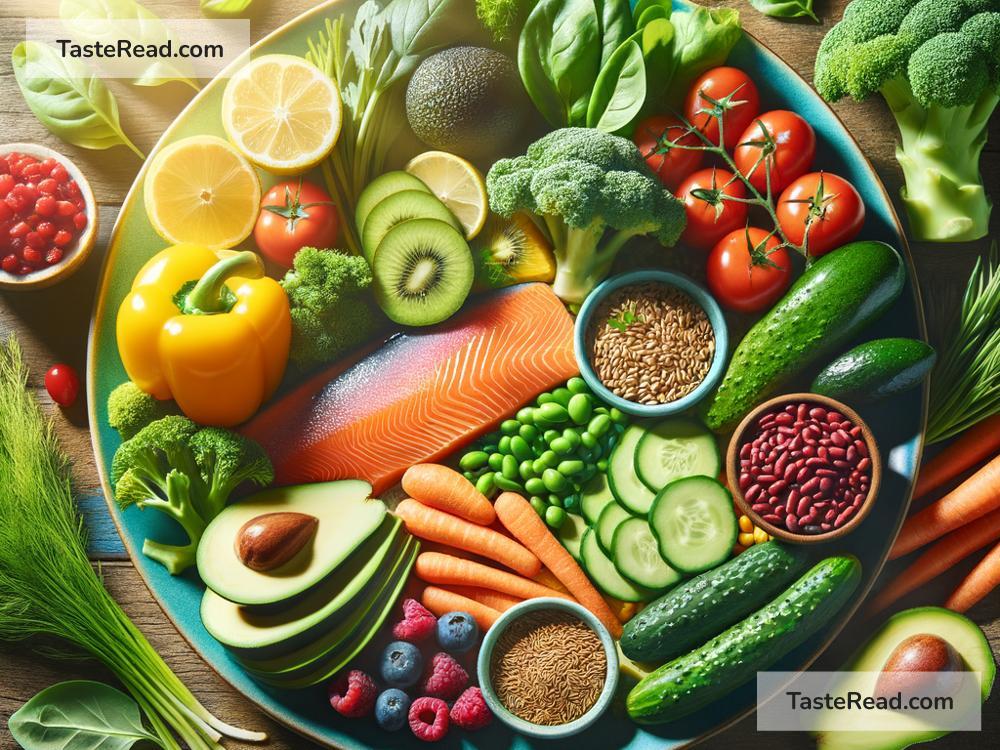The Benefits of a Balanced Diet for Liver Health: Supporting Hepatic Function
Your liver is one of the hardest-working organs in your body. It acts as your body’s natural filter, processing everything you eat and drink, removing toxins, producing bile for digestion, storing nutrients, and helping maintain your energy levels. For the liver to function effectively, it needs the right support—and this is where a balanced diet comes in. Eating nutritious foods can protect your liver and help it stay healthy long-term.
What Is the Liver and Why Is It Important?
The liver is located in the upper right side of your abdomen, just below your ribcage. It performs hundreds of functions that keep your body running smoothly. Among its many roles, the liver:
- Filters toxins: It breaks down harmful substances like alcohol or chemicals in medicine and food.
- Produces bile: Bile helps digest fats and absorb fat-soluble vitamins like A, D, E, and K.
- Stores nutrients: It keeps extra glucose, vitamins, and minerals to release when your body needs energy.
- Regulates blood sugar: The liver balances blood sugar levels by storing and releasing glucose as needed.
Given its critical role, your liver deserves proper care—and a balanced diet plays a major part in keeping it healthy.
How a Balanced Diet Supports Liver Health
A balanced diet gives your body the nutrients it needs while minimizing harmful substances that can stress your liver. Here’s how good nutrition helps your liver stay in tip-top shape:
1. Reduces Fat Build-Up
Too much fat in the liver can lead to a condition called fatty liver disease, which can harm liver function over time. This problem is often caused by unhealthy diets high in processed foods, sugar, and unhealthy fats. Choosing a balanced diet with whole grains, lean proteins, healthy fats, fruits, and vegetables can help prevent fat accumulation and support overall liver health.
2. Boosts Antioxidants
The liver works hard to detoxify your body, but this process can generate harmful molecules known as free radicals. Free radicals can damage liver cells over time. Foods rich in antioxidants, like berries, leafy greens, and nuts, help neutralize free radicals, protecting the liver from long-term harm.
3. Supports Digestive Function
Your liver produces bile, which helps your body digest fats. Without proper nutrition, your digestive system can become inefficient, putting extra strain on the liver. Eating fiber-rich foods, such as fruits, vegetables, and whole grains, keeps digestion smooth and reduces the liver’s workload.
4. Regulates Blood Sugar
The liver helps maintain a balanced blood sugar level by storing and releasing glucose. However, consuming large amounts of sugar and refined carbs (like white bread and pastries) can overwhelm the liver and lead to insulin resistance. A balanced diet with complex carbs (like brown rice, oats, and quinoa) and limited sugar intake allows the liver to function properly.
5. Protects Against Toxins
Certain foods, like processed snacks, fast food, and alcohol, contain chemicals and toxins that are difficult for the liver to process. Over time, these toxins can damage liver cells. A balanced diet that prioritizes whole, unprocessed foods minimizes toxin exposure, giving your liver a chance to focus on its essential duties.
Foods That Promote Liver Health
To give your liver the best support, incorporate liver-friendly foods into your daily meals. Here are some options to consider:
- Leafy Greens: Spinach, kale, and broccoli contain antioxidants that help reduce inflammation and protect liver cells.
- Fruits: Berries, oranges, and apples are rich in vitamins, fiber, and antioxidants that promote liver health.
- Healthy Fats: Avocados, nuts, and seeds contain healthy fats that protect the liver and reduce fat build-up.
- Whole Grains: Brown rice, oats, and quinoa provide fiber that aids digestion and helps regulate blood sugar.
- Lean Proteins: Chicken, fish, and legumes give your body necessary protein without the high saturated fat found in red meat.
- Water: Staying hydrated helps the liver flush out toxins more efficiently.
Lifestyle Changes for Liver Health
A balanced diet is just one part of maintaining a healthy liver. Pair good eating habits with these lifestyle tips for maximum results:
- Exercise regularly: Physical activity reduces fat build-up in the liver and boosts overall health.
- Limit alcohol: Excessive drinking can damage liver cells and lead to severe conditions like cirrhosis.
- Avoid processed foods: The additives and preservatives in many packaged snacks and meals can harm the liver over time.
- Manage weight: Obesity increases the risk of fatty liver disease, so aim to maintain a healthy weight.
Conclusion
Your liver works tirelessly to keep you healthy, and a balanced diet is one of the best ways to return the favor. By choosing nutrient-rich foods, avoiding toxins, and staying hydrated, you can prevent liver problems and help it perform at its best. Small changes in your daily eating habits can make a big difference in protecting your liver for years to come.
So, whether it’s adding leafy greens to your plate or switching out soda for water, start making liver-friendly choices today. Your liver—and your overall health—will thank you!


